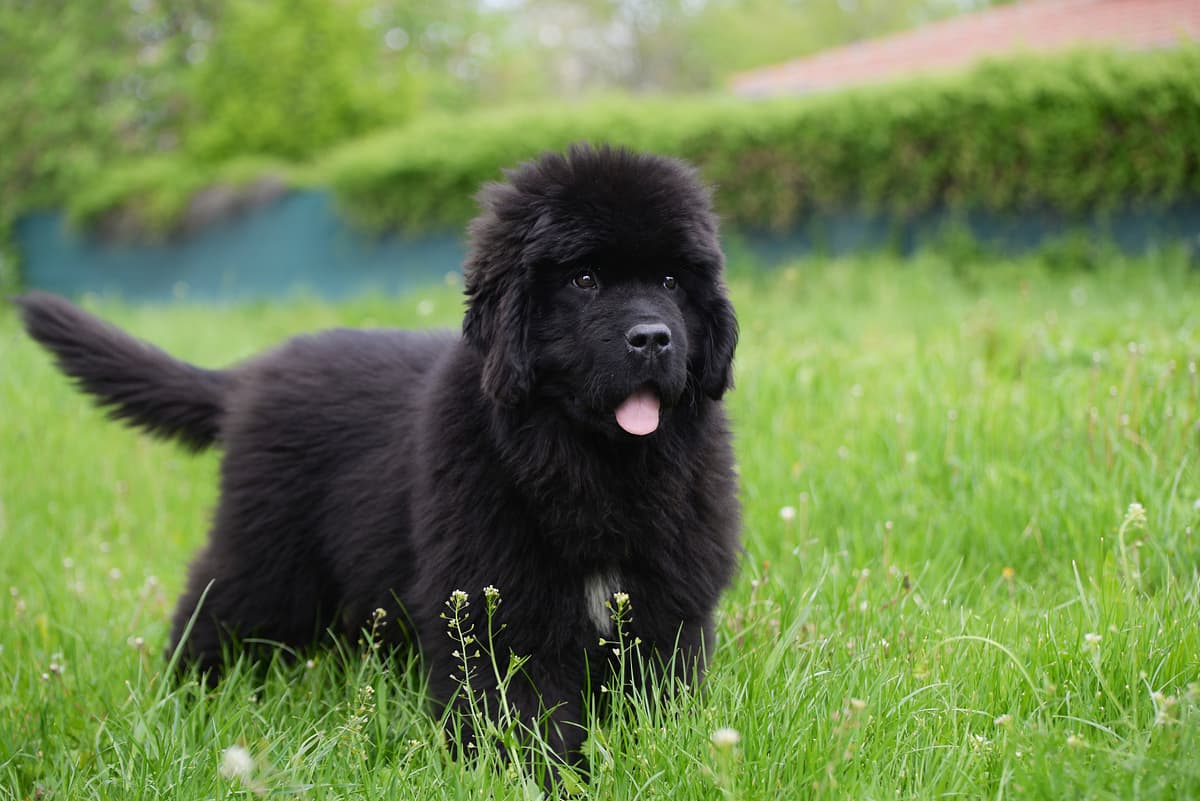Newfoundland vs Poodle
Discover the differences between Newfoundland and Poodle to make the best choice for your situation.
Try different breeds

Newfoundland
A gentle giant with a calm, patient nature and strong loyalty, Newfoundland thrives as a devoted family protector. Renowned for its swimming skills and nurturing instincts.

Poodle
Elegant, intelligent, and highly trainable, this breed stands out for its lively spirit and loyal companionship. Their hypoallergenic coat and playful personality make them ideal family pets.
Quick comparison
Large
60–70 kg
Double coat, water-resistant
8–10 years
45–55 kg
Moderately active
Medium
20–32 kg
Curly, dense
12–15 years
18–27 kg
High energy
Personality & behavior
Compare the personality traits and behavioral characteristics of both breeds.
Newfoundland
Exceptionally gentle and welcoming toward people and pets
Learns commands quickly and solves simple problems
Tends toward calmness, not highly active indoors
Enjoys games and interaction, especially with family
Adjusts well to different living situations and routines
Poodle
Warm and sociable with family and guests
Highly intelligent and quick to learn commands
Needs regular activity and enjoys exercise
Loves games and interactive playtime
Easily adjusts to new environments and routines
Care needs
Exercise, grooming, and daily care requirements
Newfoundland
Hip dysplasia, heart disease
Poodle
Hip dysplasia, Addison’s disease
Suitability
How well each breed fits different living situations and families
Newfoundland
Good option
Patient and gentle, Newfoundlands are generally manageable for first-time owners.
Not ideal
Their large size and need for space make apartments challenging.
Moderately suitable
They enjoy activity but do not require constant vigorous exercise.
Perfect fit
Known for gentleness, they are affectionate and tolerant with young children.
Very friendly
Newfoundlands are sociable and usually coexist well with other pets.
Not recommended
They dislike being left alone and can develop separation anxiety.
Poodle
Great choice
Intelligent and eager to please, Poodles are easy for beginners to train and manage.
Highly suitable
Poodles adapt well to apartment life if given daily exercise and mental stimulation.
Perfect fit
Their energy and love for activity make them great companions for active households.
Very friendly
Poodles are gentle and patient with children when socialized from a young age.
Gets along well
Poodles usually coexist peacefully with other pets, especially if socialized early.
Prone to anxiety
Poodles can develop separation anxiety if left alone for long periods regularly.
Breed strengths
What each breed excels at and their best qualities
Newfoundland
- Gentle and patient with children
- Strong swimming ability and water rescue instincts
- Generally calm and even-tempered
- Loyal and protective toward family
- Tolerant of cold weather conditions
Poodle
- Highly intelligent and easy to train
- Hypoallergenic coat reduces shedding
- Strong bond with family members
- Adaptable to various living environments
- Excellent performance in canine sports
Challenges & considerations
Potential challenges and considerations for each breed
Newfoundland
- Prone to joint and hip dysplasia
- Heavy shedding and frequent grooming required
- Can be stubborn during training sessions
- Tendency to drool excessively
- Needs ample space due to large size
Poodle
- Requires regular professional grooming
- Prone to separation anxiety if left alone
- Needs daily mental and physical stimulation
- Can be reserved with unfamiliar people
- Susceptible to certain genetic health issues
Ready to choose your perfect breed?
Learn more about each breed or compare other breeds to find the perfect match for your lifestyle.
Discover more helpful tools
Make use of our other free tools to get the most out of your pet experience
